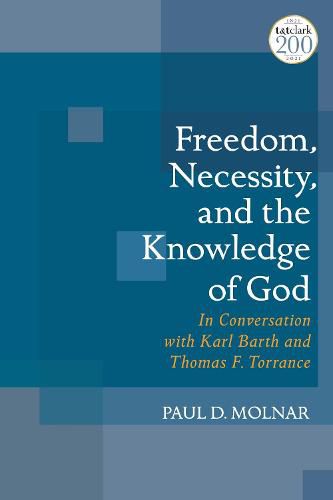Readings Newsletter
Become a Readings Member to make your shopping experience even easier.
Sign in or sign up for free!
You’re not far away from qualifying for FREE standard shipping within Australia
You’ve qualified for FREE standard shipping within Australia
The cart is loading…






Paul D. Molnar discusses issues related to the concepts of freedom and necessity in trinitarian doctrine. He considers the implications of non-conceptual knowledge of God by comparing the approaches of Karl Rahner and T. F. Torrance. He also reconsiders T. F. Torrance’s new natural theology and illustrates why Christology must be central when discussing liberation theology.
Further, he explores Catholic and Protestant relations by comparing the views of Elizabeth Johnson, Walter Kasper and Karl Barth, as well as relations among Christians, Jews and Muslims by considering whether it is appropriate to claim that all three religions should be understood to be united under the concept of monotheism.
Finally, he probes the controversial issues of how to name God in a way that underscores the full equality of women and men and how to understand universalism by placing Torrance and David Bentley Hart into conversation on that subject.
$9.00 standard shipping within Australia
FREE standard shipping within Australia for orders over $100.00
Express & International shipping calculated at checkout
Paul D. Molnar discusses issues related to the concepts of freedom and necessity in trinitarian doctrine. He considers the implications of non-conceptual knowledge of God by comparing the approaches of Karl Rahner and T. F. Torrance. He also reconsiders T. F. Torrance’s new natural theology and illustrates why Christology must be central when discussing liberation theology.
Further, he explores Catholic and Protestant relations by comparing the views of Elizabeth Johnson, Walter Kasper and Karl Barth, as well as relations among Christians, Jews and Muslims by considering whether it is appropriate to claim that all three religions should be understood to be united under the concept of monotheism.
Finally, he probes the controversial issues of how to name God in a way that underscores the full equality of women and men and how to understand universalism by placing Torrance and David Bentley Hart into conversation on that subject.